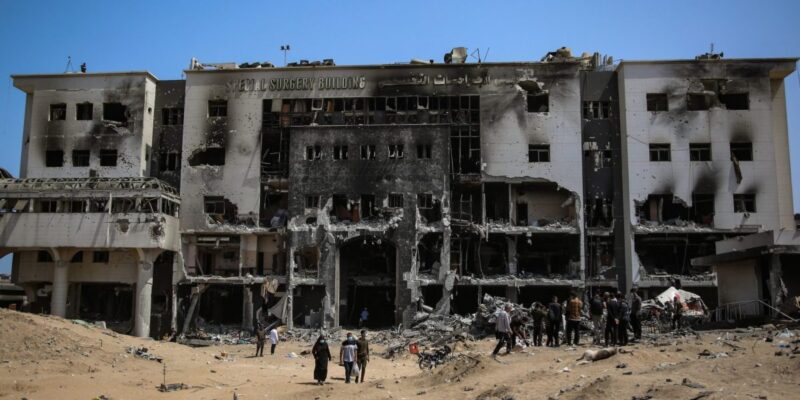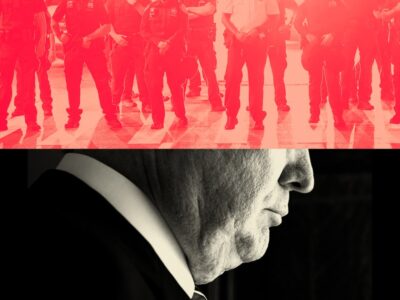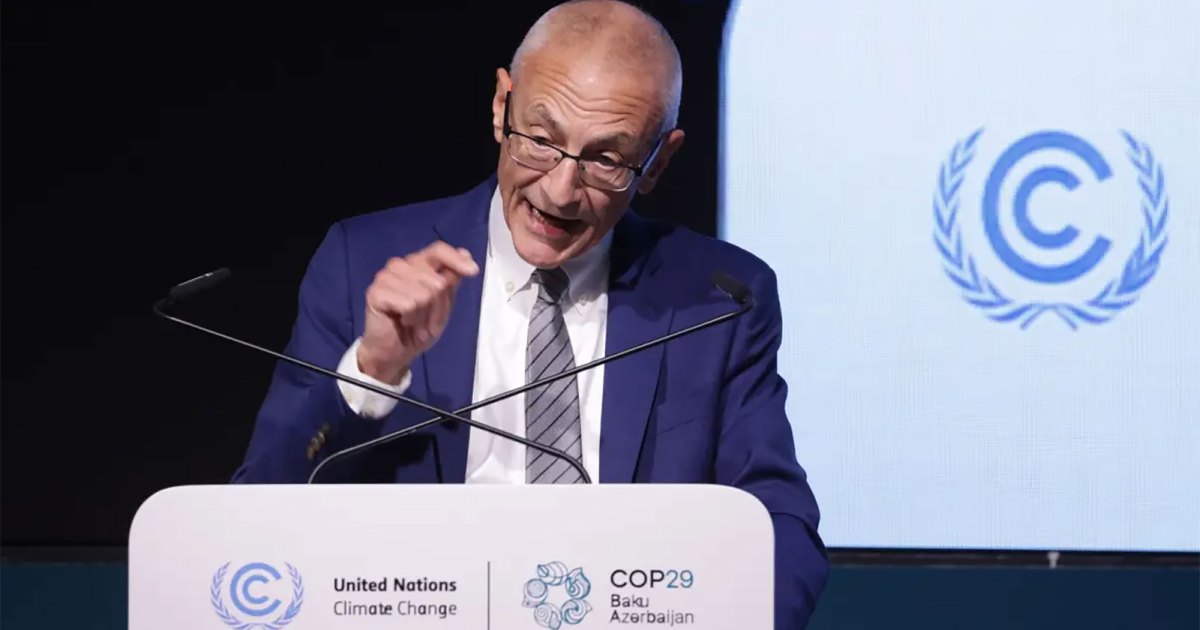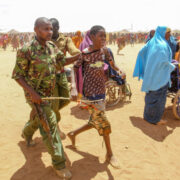
When Leonard Rubenstein saw the news on Monday that International Criminal Court Prosecutor Karim A.A. Khan is seeking arrest warrants for Hamas and Israeli leaders for alleged war crimes, he was struck by what he considered to be a glaring oversight: The charges made no mention of the well-documented, devastating Israeli military attacks against Palestinian health workers and facilities.
“It’s been so devastating in Gaza,” Rubenstein told Mother Jones, “and it’s never been the subject of a specific international prosecution.”
As founder of Safeguarding Health in Conflict Coalition, Rubenstein has brought together more than 40 organizations to raise awareness about attacks on health care in conflict zones and increase the documentation and accountability of those attacks. According to a new report that the Coalition released today, there were 761 reported incidents of violence against health care in Gaza and the West Bank—the highest of any country or territory experiencing conflict that the group tracked last year.
Nearly 500 of those reported incidents of violence occurred in Gaza, where 143 health workers were killed—the largest number recorded in any conflict since 2016, the report notes. In addition, there were more than 120 incidents of health care facilities damaged or destroyed. According to the report, all but six of those incidents occurred after Oct. 7, when Hamas launched a deadly attack on Israel, killing 1,200 Israelis and taking more than 250 hostages, including some Americans. Close to 200 other reported incidents of violence, including the killings of 3 health workers, occurred in the West Bank and East Jerusalem. According to the report, Israel reported 33 incidents of violence against health care last year, resulting in the deaths of nearly two dozen health workers in Israel.
These figures are part of a broader—and troubling—global trend. According to the new report, there were more than 2,500 reported incidents of violence against health care workers in 2023 across 30 countries and territories—a 25 percent increase compared to 2022, and the highest number the coalition has ever reported since it first began tracking these attacks 11 years ago.
With 418 instances, Myanmar, where internal armed conflicts have been raging since the brutal February 2021 military coup, had the second-highest number of reported incidents of violence last year, which included the arrests of more than 100 health care workers and the killing of 37. In addition, there were more than 180 incidents in which health care facilities were damaged, destroyed, or occupied.
The third-ranking country for reports of violence is Ukraine, where the military has been battling Russian forces since the February 2022 invasion. More than 390 acts of violence took place there, including the killings of 109 health workers and more than 200 incidents of health care facilities being damaged, destroyed, or occupied. Afghanistan, the Democratic Republic of Congo, and Sudan also had particularly high rates of violence. State forces were deemed responsible for nearly half the incidents included in the report; other armed groups—like Hamas, for example—were responsible for the rest of the attacks, particularly in sub-Saharan Africa.
Rubenstein, a human rights lawyer who is currently at the Johns Hopkins Bloomberg School of Public Health, is also the author of the 2021 book Perilous Medicine: The Struggle to Protect Health Care from the Violence of War. He notes several explanations for the overall spike in violence. One is the increasing use of explosive weapons and drones that are sometimes used in combination, which, he says, “makes it much easier to [deploy] weapons for all kinds of groups.” Deconfliction, a practice that is supposed to involve advanced planning by military personnel to protect humanitarian actors in conflicts, has also largely failed, especially in Gaza, Rubenstein adds. But for him, the greatest culprit in the surge of violence simply boils down to a lack of “political will” among leaders to take more decisive actions to address it.
“Right now, we are in a position where there’s great recognition of the problem, [and] expressions of outrage when health care is attacked, but no serious action to stop it,” he told me.
“Right now, we are in a position where there’s great recognition of the problem, [and] expressions of outrage when health care is attacked, but no serious action to stop it.”
Zaher Sahloul, a Syrian physician who has worked in conflict zones around the world, is the president of MedGlobal, an organization that deploys health care volunteers and supplies to conflict zones around the world. He was not involved in compiling the report, though MedGlobal is a member of the coalition. When I asked him to explain what he considered to be the reasons for the lack of prosecution or actions to stop the violence, he gave me a one-word response: “Racism.”
“Most of the victims are, frankly, from the Global South,” he said. “When people who are not Western are killed, it’s [seen as] not very important.”
Historically, there have been some well-intentioned efforts to address these attacks. Rubenstein points to a 2012 resolution adopted by the World Health Assembly requiring the World Health Organization to collect and report information on attacks on health care. Four years later, the U.N. Security Council adopted a resolution demanding “an end to impunity” for attacks on medical facilities and personnel. But critics—including Rubenstein and Sahloul—criticize both resolutions, alleging their accountability mechanisms are inadequate.
Quantifying the number of these attacks is also a crucial issue, but security concerns and communications blockades have made data collection difficult, according to the report. Moreover, “the gendered impact of violence against health workers remains largely unreported,” even though the majority of health care workers globally are women. In Afghanistan, where the Taliban has implemented draconian restrictions on the lives of women and girls since its August 2021 takeover, the report notes, “Health workers were arrested because they had failed to separate male and female patients or, in the case of women, for traveling without a mahram (male guardian).”
So what can be done? Recommendations include urging human rights groups to collect data on these attacks; creating a mechanism within the UN Security Council to refer allegations of these attacks to the ICC for prosecution; and for militaries to adopt no-weapons policies in health facilities and otherwise review their training to ensure they prioritize protecting health facilities in battle. The report’s first recommendation brings us back to where we began: The ICC “should prioritize investigations and prosecutions” of attacks on health workers and the patients they treat, including, specifically, in Ukraine, Israel, and the occupied Palestinian territories.
If they will, remains unclear. A spokesperson for the ICC Prosecutor’s Office said they could not comment in response to Mother Jones‘ questions about why the warrant requests from this week failed to include any reference to attacks on health care. The Israeli military often tries to justify its attacks on hospitals in Gaza by claiming that Hamas is using them as shields in which to hide or camouflage a network of tunnels in which munitions are stored and combatants hide. Rubenstein, Sahloul, and other critics assert the Israeli Defense Forces have failed to back up these claims. Instead, they appear to have failed to take steps to minimize harm to patients in hospitals as required by the Geneva Convention and baselessly have conducted mass arrests of Palestinian health care personnel.
“Overall,” Rubenstein said, “I think impunity for the attacks has had the effect of allowing them to continue with no consequences to the perpetrators.”
In the meantime, the situation in Gaza is bleak. The UN agency for Palestinian refugees, known as UNRWA, said on Tuesday only seven of their two dozen health facilities in Rafah are operational and have not been able to receive medical supplies for over a week due to the Israeli seizures at border crossings.
Sahloul does not expect things will improve anytime soon. “Attacks on health care lead to irreversible, lower access [to] health care,” he told me. The attacks on Al Shifa Hospital in Gaza, for example, he said, “Will be felt for generations, because it’s near impossible to bring back the expertise, the connections, the networks, the technology…even if the war stops.”
“When doctors flee because they are afraid for their lives,” he added, “they don’t come back.”
Update, May 23: This story has been updated to clarify Sahloul’s comment about the alleged role of racism in the failure to prosecute attacks and to clarify Rubenstein’s comment about the use of explosive weapons and drones together.















